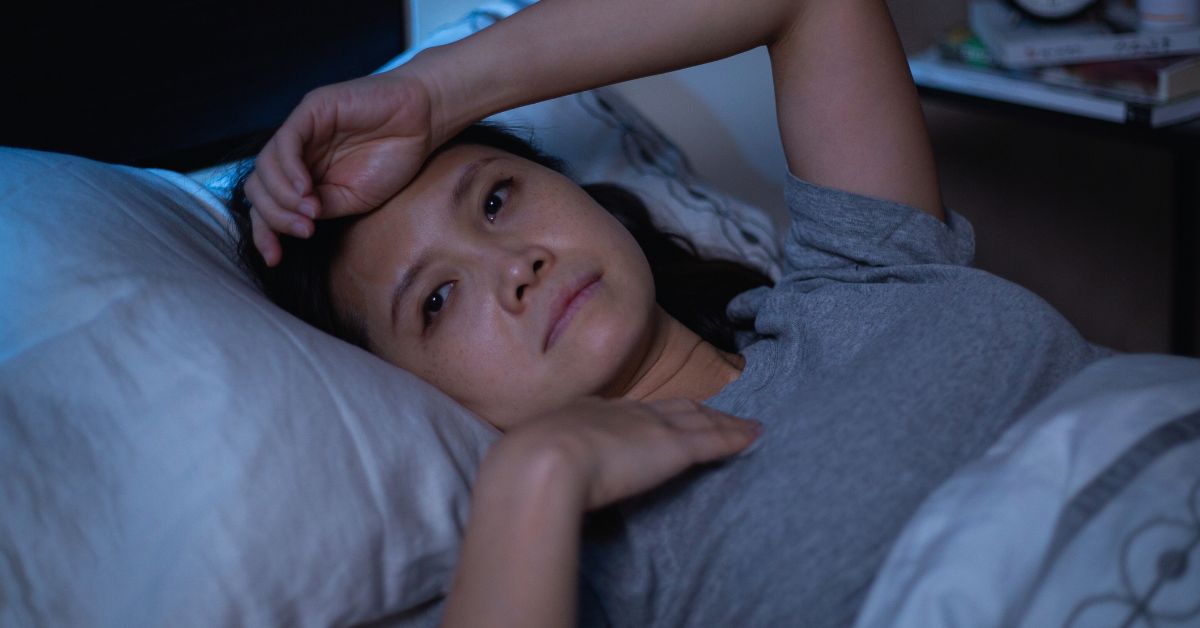Table of Contents
ToggleIntroduction
Sleep anxiety in children is a common challenge faced by many parents. The fear of the dark, separation anxiety, or worrying about bad dreams can keep children awake at night and affect their overall well-being. While this is a normal phase of development for many children, it’s important to address sleep anxiety early on to help them develop a healthy, restful sleep routine.

If you’re looking for natural remedies to help your child overcome sleep anxiety, you’re in the right place. In this guide, we’ll explore the top 10 natural remedies that can relieve sleep anxiety in children, helping them get the rest they need to thrive during the day.
What Is Sleep Anxiety in Children?
Sleep anxiety in children refers to the fear, worry, or unease children feel when it’s time to go to bed. This can manifest as fear of the dark, fear of being alone, or even nightmares. These feelings can make it difficult for children to relax and fall asleep, leading to disrupted sleep patterns and tiredness the next day.
While sleep anxiety is a common issue, it’s important to know that it can usually be managed with gentle interventions. By using natural remedies and establishing calming bedtime routines, you can help your child feel secure and relaxed at bedtime.
Top 10 Natural Remedies to Relieve Sleep Anxiety in Children
1. Create a Consistent Bedtime Routine
Children thrive on routine. A consistent bedtime routine helps signal to your child that it’s time to wind down and go to sleep. A relaxing routine might include taking a warm bath, reading a bedtime story, or engaging in light stretching. Consistency is key to helping your child feel secure and relaxed at bedtime.
2. Ensure a Calm and Comfortable Sleep Environment
The sleep environment plays a big role in helping children feel safe and relaxed. Keep the bedroom dark, quiet, and free of distractions. You may want to use a nightlight for children who are afraid of the dark. Make sure their bed is comfortable and inviting, and consider using soothing colors and soft bedding.
3. Practice Relaxation Techniques
Teach your child simple relaxation techniques such as deep breathing or progressive muscle relaxation. Encourage them to take deep breaths in and out, imagining they are breathing in calm and breathing out tension. These techniques can help ease their worries and promote a sense of calm before bed.
4. Use Aromatherapy (Lavender)
Lavender is well-known for its calming and sleep-promoting properties. You can use lavender essential oil in a diffuser or sprinkle a few drops on their pillow or bedsheet. The gentle scent of lavender helps to reduce anxiety and prepare the mind for restful sleep.
5. Limit Screen Time Before Bed
Exposure to screens before bed can interfere with your child’s ability to fall asleep. The blue light emitted by phones, tablets, and televisions disrupts melatonin production, a hormone that regulates sleep. Try to limit screen time at least an hour before bed to allow your child’s body to wind down naturally.
6. Offer Comfort and Reassurance
If your child is feeling anxious at bedtime, offering comfort and reassurance can go a long way. Remind them that they are safe and loved, and that there’s nothing to fear. Positive affirmations such as “You are safe in your bed” or “Mommy and Daddy are always nearby” can be soothing.
7. Use Calming Sounds
Calming sounds like gentle lullabies, white noise, or nature sounds can help drown out any disturbing background noise and create a peaceful atmosphere. Consider using a sound machine or playing soothing music to help your child relax and fall asleep more easily.
8. Herbal Teas or Supplements
Certain herbal teas, such as chamomile or valerian root, are known for their relaxing properties. Offering a cup of caffeine-free tea before bed can help soothe your child’s nerves. Be sure to check with a healthcare provider before giving your child any herbal teas or supplements to ensure they are appropriate.
9. Create a Security Object
A favorite stuffed animal, blanket, or comforting toy can provide emotional security to children with sleep anxiety. These objects act as a form of comfort, helping your child feel safe and protected as they fall asleep.
10. Encourage Daytime Physical Activity
Regular physical activity helps your child use up excess energy, making it easier for them to fall asleep at night. Encourage your child to play outside during the day, engage in fun physical activities, or take part in family exercises. However, avoid vigorous exercise too close to bedtime, as it could make your child too energized to fall asleep.
When to Seek Professional Help
While the remedies mentioned above can help relieve mild sleep anxiety, there are situations where professional intervention may be necessary. If your child’s sleep anxiety is severe, persistent, or starts interfering with their ability to function during the day, it’s important to seek help from a healthcare provider. Prolonged sleep anxiety can have a significant impact on your child’s emotional well-being, school performance, and social life, so it’s essential to address it early on.
Signs that it may be time to seek professional help include:
- Severe or Persistent Anxiety: If your child’s sleep anxiety continues for an extended period despite trying natural remedies, or if the anxiety intensifies over time, it may indicate an underlying issue that requires professional attention.
- Impact on Daily Life: If your child’s sleep anxiety is interfering with their ability to concentrate at school, participate in extracurricular activities, or engage with family and friends, it may be affecting their overall quality of life.
- Physical Symptoms: If your child experiences physical symptoms such as headaches, stomach aches, or sleep disturbances like nightmares and night terrors, these could be signs of unresolved anxiety.
- Fear of Separation: If your child’s sleep anxiety is rooted in separation anxiety, where they have difficulty being away from you, or if they are afraid to sleep alone, a child therapist can help work through these feelings in a safe and supportive environment.
- Behavioral Changes: If the anxiety is causing irritability, mood swings, or regression in behavior (such as bedwetting or clinginess), it’s a good idea to talk to a professional.
A pediatrician or child therapist can help assess the severity of the anxiety, identify any underlying causes, and provide therapeutic strategies such as cognitive-behavioral therapy (CBT) or relaxation techniques tailored to your child’s needs. These interventions can be particularly helpful if the sleep anxiety is linked to trauma, emotional struggles, or deeper psychological issues.

Overcome Sleep Anxiety
By addressing sleep anxiety with professional support, you can help your child develop healthier sleep habits and ensure that they feel safe, supported, and more equipped to manage their emotions during bedtime.
Conclusion: Helping Your Child Overcome Sleep Anxiety
Sleep anxiety is a common but manageable issue for many children. By implementing natural remedies like establishing a calming bedtime routine, creating a soothing environment, and using techniques like relaxation exercises and aromatherapy, you can help your child feel secure and comfortable at bedtime. With patience and consistency, your child’s sleep anxiety can be significantly reduced, leading to better sleep and overall well-being.
Frequently Asked Questions (FAQs)
Q: How long does sleep anxiety last in children
Sleep anxiety in children can last for weeks or months, depending on the child’s age and circumstances. It is often a phase that passes with time, but if it persists, it’s best to consult a pediatrician.
Q: Is it safe to use essential oils for my child’s sleep anxiety?
Yes, essential oils like lavender are generally safe for children when used in moderation. Always dilute essential oils and consult your child’s doctor before use.
Q: How can I tell if my child’s sleep anxiety is more than just a phase?
If your child’s sleep anxiety is interfering with their daily activities, such as causing significant distress or impacting their performance at school, it may be a good idea to seek professional help.
Q: Can sleep anxiety affect my child’s health?
Chronic sleep anxiety can lead to sleep deprivation, which may affect your child’s mood, cognitive function, and overall well-being. Addressing sleep anxiety early can help prevent long-term health impacts.




